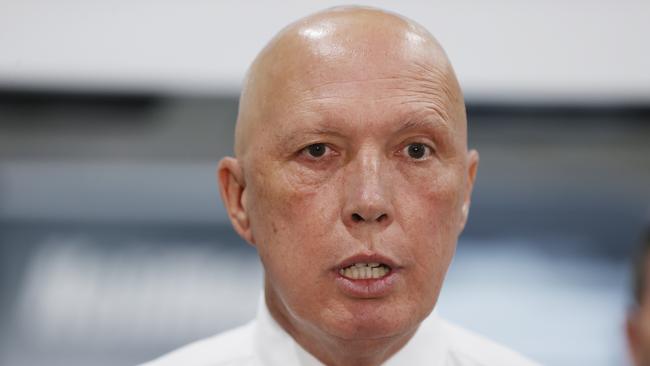After the sound and fury: four electoral lessons

The first lesson is that campaigns usually don’t decide elections because most voters have made up their minds before the campaign starts. In this case the two-party-preferred figures, according to Newspoll at the start of the campaign, had Labor on 53 per cent and the Coalition on 47 per cent. The actual voting figures for the election were 52 per cent and 48 per cent.
Accordingly, the millions spent on advertising by the parties and the constant crisscrossing of the country by politicians proved to be of no significant effect. The sound and fury of the campaign was just that – sound and fury.
This perhaps is not surprising when, as has been true in most recent federal elections, there is very little difference between the major parties on most issues.
It is true, of course, that one of the major parties can make some suicidal statement, such as acknowledging plans to introduce an inheritance tax, in the course of a campaign and alienate voters who up to that time had intended to support it. But this certainly has not happened in any recent elections in this country and it is important to realise this does not work in reverse. Spectacular promises of largesse by parties during a campaign seem to have little impact on the electorate.
The second lesson is that Australian voters appear to give governments no credit for presiding over a sound economy. During the government’s last term, interest rates and unemployment figures were at record lows and, until the last quarterly result, inflation was extremely modest.
It would appear that after almost three decades of uninterrupted economic growth, the electorate has no real memory of more difficult times and expects these conditions to continue indefinitely. As a result voters see no need to reward governments for what is assumed to be the natural order.
Similarly, government expenditures in a wide range of community services are not received with gratitude but accepted as no more than what is due. There seems to be an inability on the part of much of the electorate to make the connection between expenditure and revenue; that is why expenditure ultimately needs to be funded by taxation. Voters demand ever-increasing government spending but generally are opposed to any taxes that affect them personally. This indifference to economic realities is one reason for the support for the teal independents, who did not have any economic policies, and the Greens, who did – although ones that would do a lot of damage to the economy.
On the subject of expenditure, a third lesson is that pre-election budgets, no matter how generous on their face, do not impress the electorate. For the same reason voters are not grateful for government expenditure generally, they also are not grateful for any assistance in a pre-election budget. In fact, they are more likely to complain about the inadequacy of the new measures. Does anyone think the government’s cut to the fuel excise in an effort to reduce the price of petrol immediately before calling the election turned a single vote?
The fourth lesson is largely one for the Liberals. The teal independents were a symbol of how far the Liberals have moved from the Menzies’ era when they were the party of the respectable middle class. These independents were rich, socially prominent women who all would have been strong Liberal supporters once.
But the Liberals now are treated with disdain in schools and universities, by the ABC, at literary and cultural festivals, and even by some of the wealthiest members of the corporate sector. In the days of Menzies all these groups would have been strongholds of Liberal support but, while most of their members are not actively engaged in party politics, they have a deep hostility to the Liberals, particularly on climate change, border protection, freedom of speech and religious rights.
This contempt on the part of those in most public and some private institutions is not generally reflected in the wider community but it still has taken a toll on the Liberals in the electorate generally. This does not mean they cannot win a future federal election. Indeed, unless the two-party system in Australia collapses, they will win a federal election in the immediate future. But their task is much more difficult than it was even 20 years ago.
Michael Sexton’s latest book is Dissenting Opinions.



Now that some of the dust has settled from the federal election, there are some lessons that may be noted by both sides.